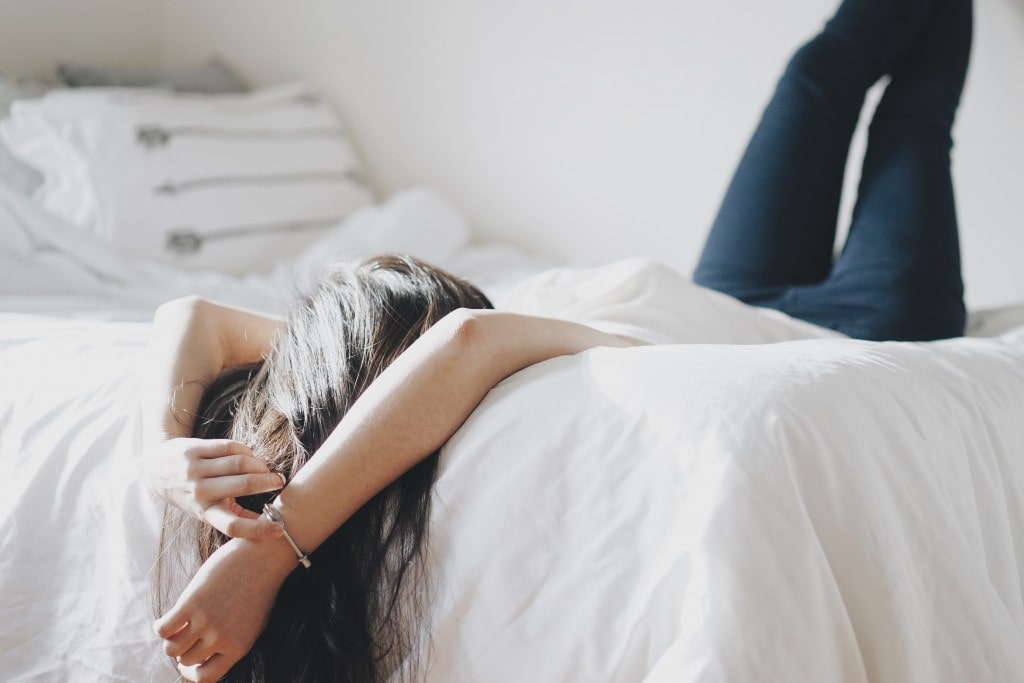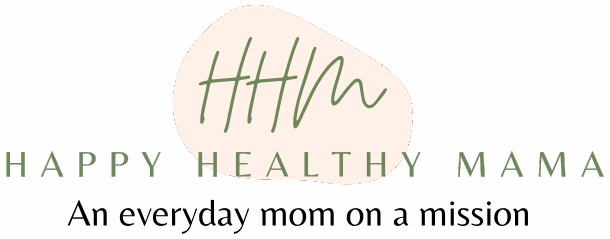 We’ve all been there. The words, I can’t sleep, run on repeat in your mind like a bad song. You want to fall asleep so badly, but the more you think about it, the worse it gets, and your mind and body can’t seem to connect.
We’ve all been there. The words, I can’t sleep, run on repeat in your mind like a bad song. You want to fall asleep so badly, but the more you think about it, the worse it gets, and your mind and body can’t seem to connect.
March is Healthy Sleep Month here at Happy Healthy Mama, but I’d be lying if I said I’m rocking this challenge. I will give you a full update later tomorrow, but I will tell you that prioritizing sleep is hard. When my to-do list gets too long to fit it all into a day, what gets chopped first? An hour or so of sleep.
But what happens when you do prioritize sleep and it still can’t happen? What happens when you are in bed every night, ready to sleep, but sleep doesn’t come? There are things you can do before bedtime and at bedtime to help promote sleep naturally.
I can’t sleep. Now what?
If you know that you have trouble falling asleep every night, let’s look at some natural ways to help you cure your insomnia. There are natural sleep aids out there that can help you get the restful sleep you crave. It starts with the right attitude. Tell yourself that you will be able to fall asleep. Only let the thought, This will work, enter your mind. Push every negative thought about your insomnia out of your mind. Now you’re ready to get some sleep.
10 Ways to Fall Asleep Naturally
#1 Only use your bed for sleeping (or sex).
Your bed is for sleeping (or getting intimate; that is an exception) so don’t use it for working, reading, or watching TV. If you are in the habit of doing these things in your bed, stop. Only get into your bed when you’re ready to sleep.
#2 Before you go to bed, write.
When I have trouble falling asleep, it’s often because too many thoughts are running through my brain. I can’t turn it off. I’ve found it helpful to write before I go to bed to get the thoughts out of my mind and on paper. Sometimes it’s a to-do list, and it usually seems much shorter and more do-able after I write it down. Other times it’s just emotions that I need to get out, so I write them in a journal. Going to bed with a clear mind can help you fall asleep naturally.
#3 Use lavender essential oil.
Lavender essential oil is a helpful oil for sleep. It is known as a calming oil that promotes restful sleep. We use this Lavender Linen Spray on our pillows at night, but you can also just put a few drops in the palm of your hands and inhale it deeply. Then add a few drops to your pillow.
#4 Make sure you are exposed to natural blue light during the day and avoid artificial blue light close to bedtime .
Getting exposure to natural sunlight during the day supports the body’s natural circadian rhythms. Without any natural light exposure, your body’s rhythms may be out of whack, which can cause sleeplessness. The same is true for getting artificial blue light exposure after the sun sets. There’s a reason you can’t get natural blue light after the sun goes down; our bodies are not meant to be exposed to blue light close to bed time. It blocks melatonin, the hormone that controls our sleep and wake cycles and should naturally go up in the evening. I recently discovered there are anti-blue light glasses you can wear in the evening that block blue light if you absolutely can’t stop looking at screens before bed.
#5 Try a natural sleep aid.
You can take melatonin before bed to help you fall asleep. I haven’t taken it in years, but in high school and college would use it occasionally when I was unable to get to sleep. I found it worked very well. My husband, Tim, has also used it a few times and it worked for him, also. If you are using it to recover from jet lag or other occasional uses, a larger dose is acceptable, but if you are planning to use it nightly, a much smaller dose is recommended. Make sure you talk to your doctor first if you aren’t sure.
An herb that is used to help promote sleep is Valerian. I’ve not tried this one, but if you would like something natural with a sedative effect, look into this herb.
#6 Keep your body still.
This may seem like a given, but I remember coaching my daughter Meghan to fall asleep a few times and she tossed and turned so much. Every time you move when you are trying to fall asleep, you start the falling-asleep-process over again. Focus on staying as still as possible, only moving to breathe. Don’t let your mind think about anything except the air you are breathing in and out. If your insomnia is severe, you may need to sleep alone in a bed because somebody else’s movement or even noises can also disrupt the process of falling asleep.
#7 Avoid sleep stealers.
Caffeine in the afternoon or evening, late naps, alcohol before bed. These are all sleep stealers that can rob you of the precious gift of falling and staying asleep. If you struggle with insomnia, avoid these things.
#8 Try meditation.
Meditation promotes emotional well being, which can result in better sleep. To get the most out of meditation, it’s best to do it everyday. You only need to do it for about 10 minutes, so almost anyone should be able to fit it into their schedule. My husband Tim recently started using the guided meditation from headspace.com and recommends it.
#9 Exercise (at the right time).
Studies show that exercise helps people fall asleep easier and stay asleep better. The time you exercise may affect how well you sleep, also, though. Most experts assert that you sleep better when you don’t exercise too close to bedtime. Recently, however, multiple people have told me that they sleep better when they exercise in the evening. Clearly it’s very individualized. Experiment and find out how the time you exercise correlates to getting great sleep.
#10 Keep a sleep journal.
If you want to sleep better, you need to find out what works for you. Write down what time you go to bed, what you ate and drank close to bedtime, and any and all factors that can affect your sleep. Look for patterns that emerge. What conditions lead to the best sleep for you? A sleep journal can help you find the answers you need to create the perfect conditions for good sleep.
Do you have anything you’d add to this list? What has worked for you?
Links to products are affiliate links. Thank you for supporting Happy Healthy Mama!



It has been a while since I have been able to fall fast asleep. However, once I began practicing meditation, I was able to do it easily. In addition, I am sleeping much better and longer. I appreciate your post and the useful tips you provided. I’m adding lavender oil to my shopping list)
#2 is a huge one. Lots of people already recommend reading for bed, but for some people (or some times) writing can be even better. Or if you’re feeling up to it, you could even do both.
Perhaps a controversial choice, but a natural one: cannabis, specifically oil or edibles. If you’re in a legal state of course:)
Is it bad that I had to google “cannabis”? 😉
Meditating is really great before bed. I used to meditate during pregnancy before I went to bed and I had absolutely no issues falling asleep. I’m struggling to make the time commitment now, even though I know that only 10 minutes are so so beneficial. But those screens … I always end up working too long and then I try to get in bed as fast as possible.
What does help though is when I shower in the evening. The warm water relaxes both my muscles and my mind…
I need to start meditating. Isn’t it crazy that 10 minutes seems like a big commitment every day? I’m in the same boat…
I have had a lot of trouble sleeping, but it’s mostly irrational fear of someone breaking into my second story window. I want to try the lavender oil. That sounds so relaxing!
You should try meditation, too! It is supposed to really help with anxiety.